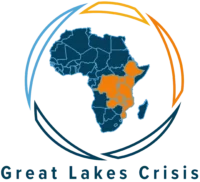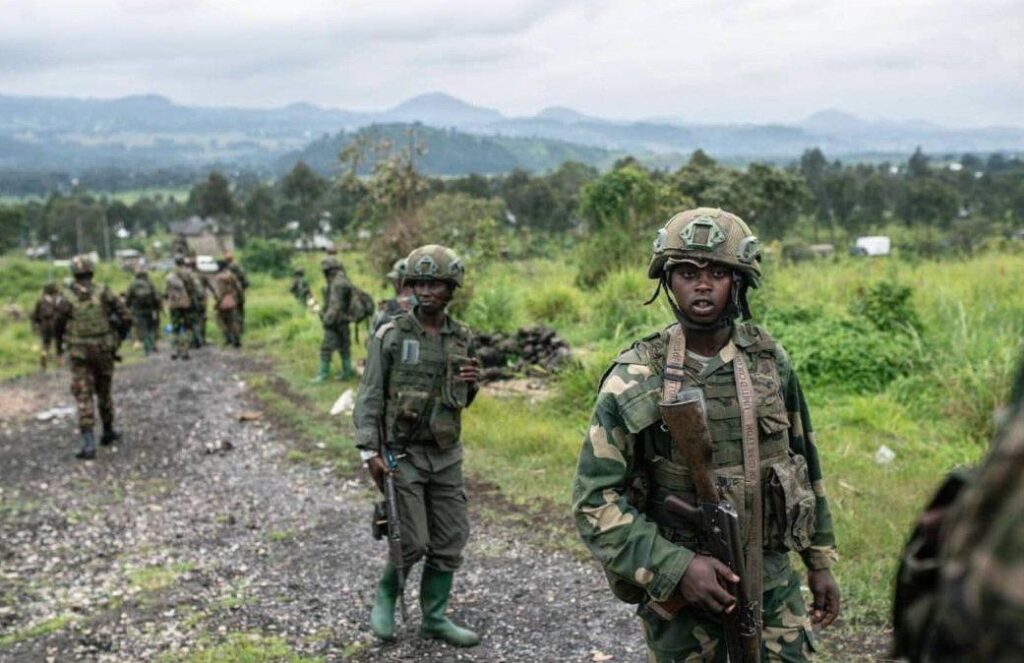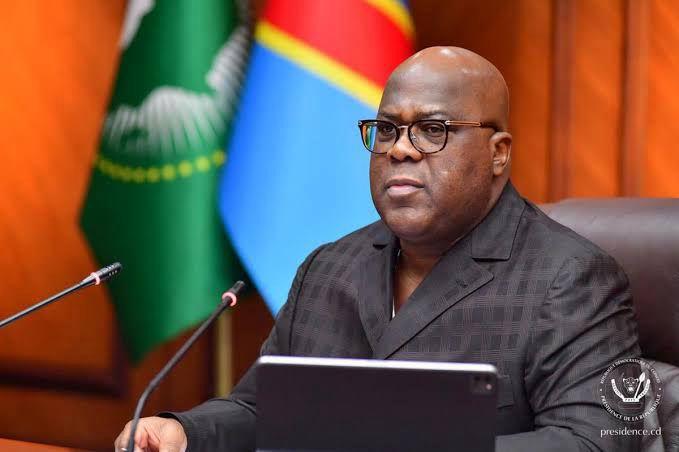Since its independence in 2011, South Sudan—the world’s youngest nation—has faced persistent ethnic tensions, weak institutions, and leadership rivalries that have blocked progress toward peace and unity. Although independence brought initial hope, the country soon descended into conflict. The 2013 civil war, driven by the political rivalry between President Salva Kiir’s Sudan People’s Liberation Movement-In Government (SPLM-IG) and Vice President Riek Machar’s Sudan People’s Liberation Movement-In Opposition (SPLM-IO), left deep divisions in the nation’s social and political fabric.
The 2018 Revitalized Agreement on the Resolution of the Conflict in South Sudan (R-ARCSS) offered a path toward reconciliation, power-sharing, and reform. Yet its slow and uneven implementation has renewed fears of conflict, especially after Machar’s house arrest and increased clashes between the South Sudan People’s Defense Force (SSPDF) and the White Army, a Nuer-aligned militia tied to Machar’s support base.
This article addresses the pivotal question: To what extent can inclusive governance, effective regional intervention, and strengthened institutions prevent the resurgence of civil war in post-conflict South Sudan? This question is central to understanding both the immediate risks and the long-term solutions required to address the country’s recurring instability.
Political Rivalry and the Fragile Peace
The 2013 civil war began after President Kiir accused Machar of planning a coup, which worsened tensions between the SPLM-IG and SPLM-IO (Lomoro, 2017). These internal divisions within the SPLM reveal the weakness of power systems focused on elite interests rather than national unity. Although the R-ARCSS peace deal was signed in 2018, its progress has been slow. Important steps like forming a unified army and drafting a permanent constitution are still incomplete (Rone, 2021). The lack of progress and ongoing mistrust between SPLM-IG and SPLM-IO have led to renewed violence. Clashes between military factions show how unstable the situation remains. The house arrest of Riek Machar has added to the tension, raising fears of political repression and unrest among his followers. Fighting has worsened in areas like Nasir, especially between the SSPDF and the White Army, highlighting the urgent need for serious political talks (Morris, 2020).
Ethnic Division and the Need for Inclusive Governance
The ongoing conflict in South Sudan highlights deep ethnic divisions that have been used for political gain. President Kiir’s control through the Dinka-majority SPLM-IG has often left out other ethnic groups, especially the Nuer, increasing resentment and feelings of exclusion (Deng, 2019). Ethnic identity has become closely tied to political loyalty, making national politics more about tribal interests than the broader national good (Zerihun, 2022). Without inclusive governance that brings all ethnic communities into political and economic life, the country risks falling back into continuous violence (Deng & Gai, 2021).
Recent studies stress the need for collective, inclusive governance as a way to reduce conflict through fair representation (Hassan & Ojok, 2019). Power-sharing must go beyond symbolic roles and include real participation at every level of government and civil society. This requires clear changes in the political system to allow all ethnic groups to take part in decision-making and ensure accountability.
Regional and International Efforts
As instability grows, regional and international actors have stepped up efforts to help resolve South Sudan’s political crisis. The African Union’s Panel of the Wise—a group of senior African leaders and diplomats—has renewed calls for inclusive dialogue (Olowu, 2021). At the same time, the Intergovernmental Authority on Development (IGAD), which was key to the 2018 peace deal, is pushing for adherence to the transitional roadmap and has introduced mechanisms to track progress (Tirella, 2022). The United Nations Mission in South Sudan (UNMISS) continues to support peace through peacekeeping, civilian protection, and human rights monitoring (Kasaija & Nyong’o, 2020). However, these efforts face challenges due to the hardened stances of political elites and growing militarization of local conflicts.
As part of IGAD’s mediation, Kenyan opposition leader Raila Odinga visited Juba in March 2025 to promote dialogue between President Kiir and First Vice President Machar. Odinga aimed to bring the two leaders together, but he was denied access to Machar, who remained under house arrest following clashes between the SSPDF and the White Army. Although Odinga met with Kiir, he could not reach Machar, deepening concerns about political polarization. Odinga later expressed disappointment, saying he wanted to hear Machar’s views directly. The South Sudanese government denied blocking the meeting, claiming Odinga’s visit was planned in advance and not intended for direct talks with the opposition.
For international efforts to succeed, they must combine high-level negotiations with grassroots reconciliation (Ayuya, 2021). This requires a flexible approach that takes into account South Sudan’s complex ethnic divisions and historical grievances.
Humanitarian Crisis and Civilian Suffering
The renewed conflict has worsened an already severe humanitarian crisis. Over 2.2 million people are displaced within South Sudan, and another 2.3 million have fled to neighboring countries like Uganda, Ethiopia, and Sudan (Morris, 2020). Humanitarian groups estimate that since the civil war began in 2013, over 400,000 people have died—many in recent violence. Malnutrition remains critical, especially among children, with one in four suffering from acute malnutrition. This is largely due to blocked aid routes, looted food supplies, and ongoing conflict that hinders relief efforts.
Civilians caught between the South Sudan People’s Defence Forces (SSPDF) and Machar’s White Army militias face forced displacement, sexual violence, targeted killings, and destruction of homes and farms. Humanitarian agencies like the UNHCR and the World Food Programme continue to call for unrestricted access to deliver food, healthcare, and shelter to those in need. Long-term recovery depends not only on aid but also on supporting trauma healing and community reconciliation. These elements must be central to any peacebuilding strategy aimed at restoring trust in post-conflict South Sudan (Smith, 2022).
Institutional Fragility and Governance Breakdown
South Sudan’s institutions are weak, with a politicized military, a compromised judiciary, and few public services. These issues hinder peace efforts and fuel public frustration (Zerihun, 2022). The South Sudan People’s Defense Forces (SSPDF) have been accused of human rights abuses, while the judicial system has failed to hold perpetrators accountable, perpetuating impunity.
Delays in constitutional reform and failed power-sharing agreements further erode trust in the state. Both the 2013 and 2018 peace agreements have struggled with implementation, especially regarding security reforms and a unified army. Genuine change requires depoliticizing institutions and creating governance systems that reflect the country’s ethnic and social diversity (Hassan & Ojok, 2019).
Rebuilding institutions should focus on integrity, efficiency, and meeting citizens’ needs. The South Sudan Truth and Reconciliation Commission could play a key role in fostering reconciliation, though political interference has limited its impact. Long-term peace depends on engaging grassroots organizations and civil society to strengthen local capacity and restore trust.
Conclusion: Towards a Sustainable Peace
South Sudan finds itself at a pivotal crossroads. The recurring cycles of violence, unfulfilled peace agreements, and persistent ethnic divisions necessitate a transformative approach to governance that embraces inclusivity and strengthens institutional frameworks. Political leaders must prioritize the collective interests of South Sudanese citizens over factional gains, while regional actors must sustain pressure to ensure compliance with peace commitments.
Cautious optimism persists in the possibility of cohesive state-building. Continued engagement from the African Union, IGAD, and the United Nations, along with rising local civil society voices advocating for peace and accountability, creates an avenue for stability. However, successful pathways forward will depend on the willingness of South Sudan’s leaders to pursue genuine dialogue alongside the capacity of external actors to foster inclusive governance structures centered around the needs of the people.
References
Ayuya, S. A. (2021). Humanitarian Response and Community Resilience in South Sudan: Integrating Approaches for Sustainable Peacebuilding. Journal of Humanitarian Affairs, 3(1), 12-25.
Bedigen, W. (2022). A quest for sustainable peace in South Sudan: The role of everyday religious practices, ceremonies and rituals in robust peacebuilding. Journal of the British Academy, 10(S1), 55–77. https://doi.org/10.5871/jba/010s1.055
Birhanu, M., & Ahadu, E. (2019). Evaluating the challenges of IGAD-led peace process of South Sudan. International Affairs and Global Strategy, 78(1). https://doi.org/10.7176/iags/78-01
De’Nyok, M., & Adea, M. (2024). The roles of service leadership in South Sudan transitional governance and institutional performances. International Journal of Science and Business, 33(1), 139–154. https://doi.org/10.58970/ijsb.2320
Dubale, A. (2024). The geopolitics of the Horn of Africa: Navigating regional conflicts and global interests. International and Public Affairs, 8(2), 27–31. https://doi.org/10.11648/j.ipa.20240802.12
Hassan, A., & Ojok, A. (2019). The Role of Regional Organizations in Negotiating Peace: The Case of the IGAD in South Sudan. African Journal of Political Science, 16(3), 1-17.
Kasaija, J. K., & Nyong’o, A. (2020). UNMISS and Human Rights in South Sudan: Assessing the Peacekeeping Mandate. Journal of International Humanitarian Action, 5(1), 7-19. doi:10.1186/s41018-020-00066-3.
Lomoro, M. (2017). Civil War in South Sudan: Institutional Collapse and Its Implications for Peace. Conflict Studies Quarterly, 20, 33-56.
Magara, I. (2022). Complexities of international mediation at sub-regional levels in Africa: Lessons from South Sudan. Journal of Aggression, Conflict and Peace Research, 15(1), 51–65. https://doi.org/10.1108/jacpr-01-2022-0669
Mangani, D., & Molapo, R. (2018). The national question, identity and the crisis in South Sudan. Commonwealth Youth and Development, 15(1). https://doi.org/10.25159/1727-7140/3298
Morris, D. A. (2020). Civilians and Conflict: Humanitarian Crises in South Sudan. International Journal of Conflict Management, 31(4), 661-679. doi:10.1108/IJCM-06-2019-0139.
Nyadera, İ., & Kisaka, M. (2022). Examining the prospects of consociational power-sharing as a conflict resolution strategy in South Sudan. African Journal of Political Science, 10(1), 107–116. https://doi.org/10.36615/ajpsrasp.v10i1.1192
Olowu, O. (2021). The Role of Traditional Leaders in Peace Processes: Lessons from South Sudan. Journal of African Development, 23(2), 125-141.
Opiyo, K., Iteyo, C., & Onkware, K. (2024). The nature of the United Nations peace mission in South Sudan. African Journal of Empirical Research, 5(2), 710–724. https://doi.org/10.51867/ajernet.5.2.62
Smith, R. J. (2022). Humanitarian Access in Conflict: Challenges and Solutions in South Sudan. Journal of Humanitarian Assistance, 5(1), 45-60.
Tirella, G. (2022). Regional Dynamics of the South Sudan Conflict: IGAD’s Role in Peace Efforts and Failures. African Affairs, 121(483), 442-467. doi:10.1093/afraf/adac040.
Waal, A. (2014). When kleptocracy becomes insolvent: Brute causes of the civil war in South Sudan. African Affairs, 113(452), 347–369. https://doi.org/10.1093/afraf/adu028
Zerihun, A. A. (2022). Power and Identity in South Sudan: The Interplay of Ethnicity and Politics. Journal of Conflict Resolution, 66(5), 1223-1245. doi:10.1177/00220027221082314.


